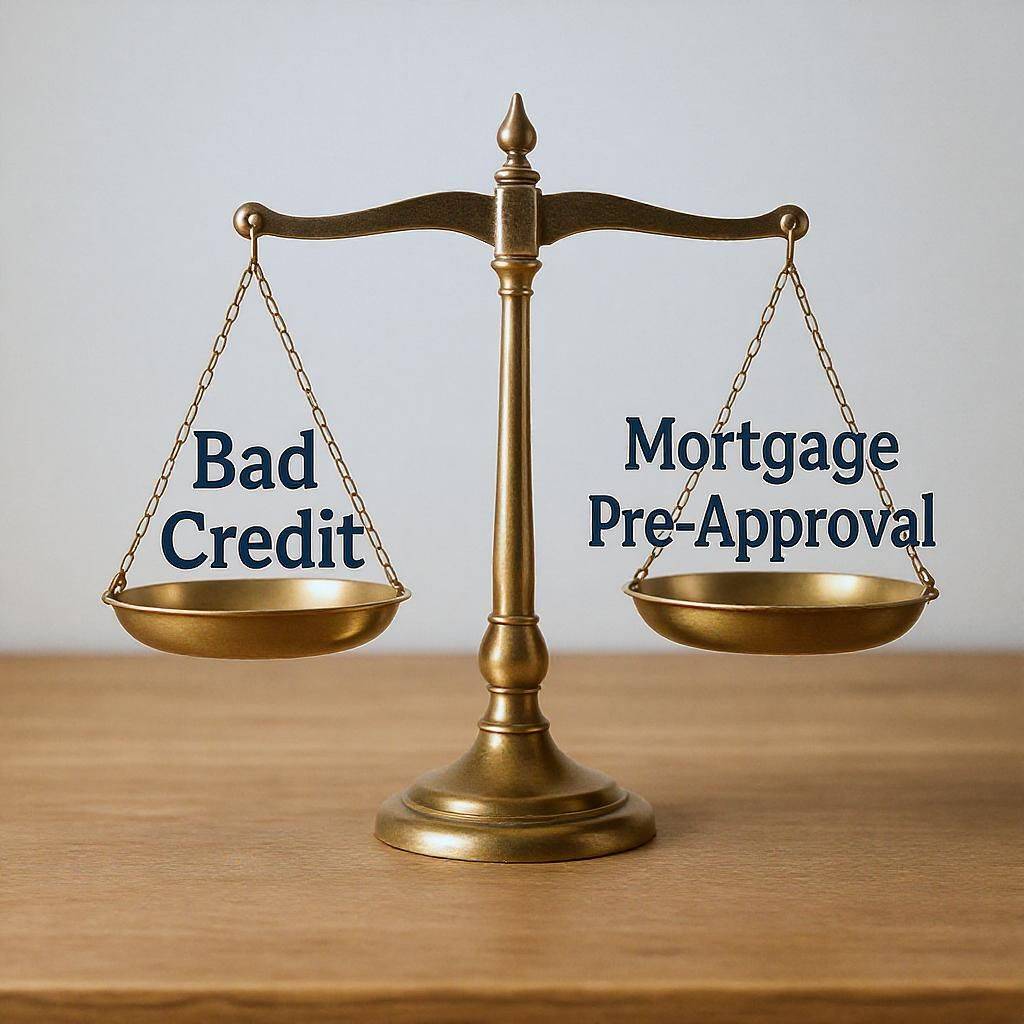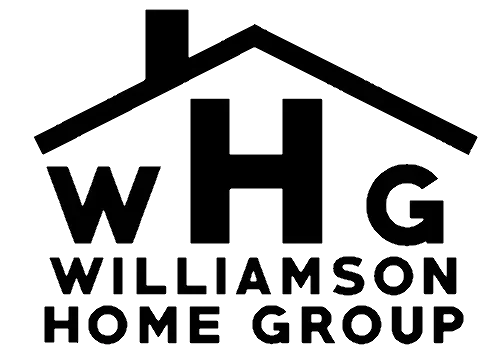
Think buying a home with bad credit? You’re wrong. Many people buy homes with poor credit scores.
Buying a home with bad credit needs different plans. You must know which options work for you. Good news: several paths lead to owning a home.
What Credit Score Do You Need for Buying a Home with Bad Credit?
Most people think you need perfect credit to buy a house. This is false. Many lenders take lower credit scores.
FHA loans take credit scores as low as 580. Some lenders even take scores of 500 with bigger down payments. VA loans often approve people with scores around 620.
Don’t let fear stop you from trying when you have poor credit.
FHA Loans: Your Best Friend When Buying a Home with Bad Credit
FHA loans are perfect for people with poor credit scores. These government loans have easy rules.
You only need 3.5% down with a 580 credit score. Even with scores between 500-579, you can qualify with 10% down.
FHA loans also allow higher debt amounts. This helps if you have other monthly bills. Many first-time buyers use FHA loans.
The insurance costs more than regular loans. But this trade-off makes owning a home possible with credit problems.
VA Loans for Veterans with Poor Credit
Veterans get special help when buying homes with credit issues. VA loans don’t require minimum credit scores.
Each lender sets their own rules. Most take scores around 620. Some go even lower for qualified veterans.
VA loans need no down payment. They also don’t need insurance. These benefits make owning a home much easier for veterans with credit problems.
You must have served in the military to qualify. Your spouse may also qualify in some cases.
USDA Rural Housing Loans
USDA loans help people in rural areas. They’re great for buying homes outside cities with credit problems.
These loans need no down payment. Credit score rules are flexible. Most lenders want scores of 640 or higher.
But some take lower scores with other good factors. Good income history can make up for poor credit.
The home must be in a rural area that qualifies. Check the USDA website to see if your area works.
State and Local First-Time Buyer Programs
Many states offer special programs for first-time buyers. These programs make owning a home easier with credit issues.
Down payment help is common. Some programs give grants you don’t pay back. Others give low-rate second loans.
Credit rules vary by program. Many take lower scores than regular loans. Some care more about income than credit history.
Call your state housing office for info. Local housing groups also offer programs.
Alternative Lenders and Credit Unions for Buying a Home with Bad Credit
Regular banks aren’t your only choice. Other lenders help people with poor credit scores.
Credit unions often have flexible rules. They look at your whole money picture. Your relationship with them matters more than just credit scores.
Online lenders also offer loans for poor credit. They use different approval methods than regular banks. Some focus on income and job history.
Some lenders keep loans instead of selling them. This allows more flexible rules for credit-challenged buyers.
Rent-to-Own Deals
Rent-to-own deals offer another path to owning a home. You rent the house with a choice to buy later.
Part of your rent goes toward the buy price. This builds equity while you fix your credit. You get time to fix credit problems before buying.
Make sure the contract is fair and legal. Have a lawyer check the deal. Not all rent-to-own deals are good.
This option works well if you need time to fix your money situation.
Owner Financing Options for Buying a Home with Bad Credit
Some sellers will finance the buy themselves. This cuts out bank approval for credit-challenged buyers.
The seller acts as your lender. You make payments right to them. They hold the loan until you pay it off.
This works best when sellers own their homes free and clear. They might take lower credit scores for higher rates.
Always use a lawyer for owner financing. Proper papers protect both parties.
Steps to Help Your Chances When Buying a Home with Bad Credit
Poor credit needs prep work. Take these steps to improve your approval odds.
Save for a bigger down payment. More money down reduces lender risk. It can make up for poor credit scores.
Pay down current debt before applying. Lower debt ratios help approval chances. Focus on credit cards and personal loans first.
Get pre-approved before house hunting. This shows sellers you’re serious. It also shows any credit issues early.
Think about adding a co-signer with good credit. Their credit score can help you qualify. Make sure they understand what they’re signing up for.
Papers You’ll Need
Lenders need more paperwork when working with credit-challenged buyers. Get these documents early.
Bring two years of tax returns. Pay stubs from the last month help too. Bank statements show your saving patterns.
Write a letter explaining credit problems. Be honest about what happened. Show how you’ve improved your situation.
Proof of rent payments can help. This shows you pay housing costs on time. Utility payment history also shows you’re responsible.
Common Mistakes to Avoid When Buying a Home with Bad Credit
Don’t make these errors when you have poor credit. They can hurt your approval chances.
Don’t apply with many lenders at once. This creates too many credit checks. Space out applications by at least 14 days.
Don’t make big purchases before closing. New debt can kill your approval. Wait until after you own the home.
Never lie about your credit history. Lenders will find out the truth anyway. Honesty works better than lying.
Don’t give up after one no. Different lenders have different rules. Keep trying with various options.
Working with Real Estate Pros
Pick agents who understand credit challenges. They know which lenders work with poor credit buyers.
Smart agents can suggest helpful programs. They also know sellers who might consider owner financing.
Loan brokers can be very helpful. They work with many lenders. This increases your approval chances.
Make sure pros understand your situation. Clear talk prevents wasted time and effort.
Timeline for Buying a Home with Bad Credit
Poor credit makes the process take longer than normal buys. Plan for extra time in the process.
Pre-approval might take several weeks. Lenders need time to review complex cases. Don’t rush this important step.
Underwriting also takes longer with credit issues. Expect 45-60 days from application to closing. Some cases take even longer.
Start your search early to account for delays. Patience pays off when you have credit challenges.
Making Your Dream Real
Buying a home with bad credit is hard but possible. Many people succeed with the right approach and persistence.
Start by checking your credit report for errors. Fix any mistakes before applying for loans. Every point helps your approval chances.
Research all available programs in your area. Government programs offer the best terms for poor credit buyers. Don’t overlook local help programs either.
Remember that owning a home is a long-term investment. The effort you put in now pays off for years. Your credit will improve as you make payments on time.
Take the first step today. Contact a HUD-approved housing counselor for free advice. They can guide you through the process and help make your home-owning dreams come true.
Read our other articles:
Finding Your Dream Home: Balancing Wishes with Reality
First-Time Homebuyer’s Guide: From Dream to Doorstep
Need Help Buying or Selling Your Home?
Browse listings: www.buyclarksvillehomes.com
Call us: (931) 320-6987
Email: joey@williamsonhg.org
Each Keller Williams office is independently owned and operated.





